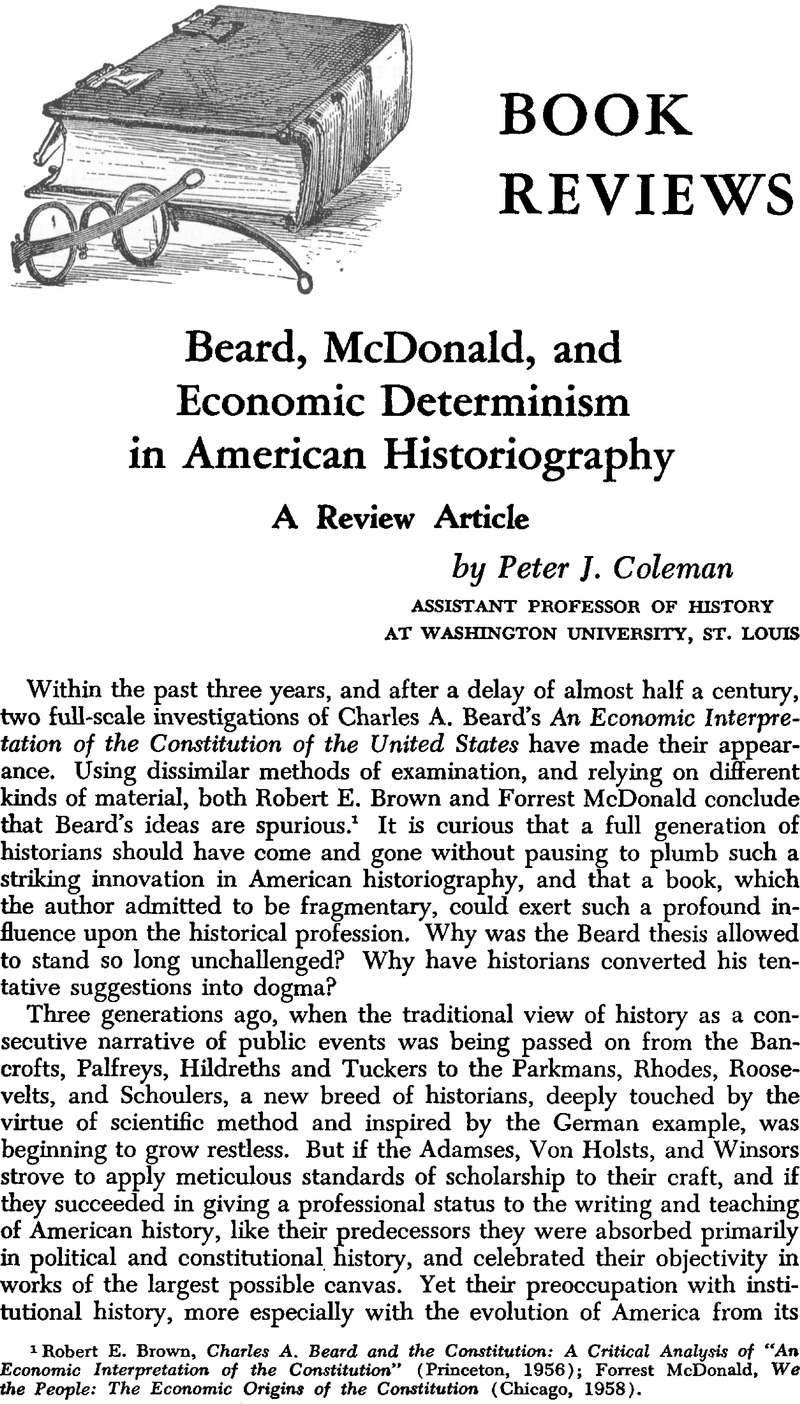Published online by Cambridge University Press: 24 July 2012

1 Brown, Robert E., Charles A. Beard and the Constitution: A Critical Analysis of “An Economic Interpretation of the Constitution” (Princeton, 1956)CrossRefGoogle Scholar; McDonald, Forrest, We the People: The Economic Origins of the Constitution (Chicago, 1958)Google Scholar.
2 For the only full-scale attempt to test the Turner thesis, see, Curti, Merle, The Making of an American Community: A Case Study of Democracy in a Frontier County (Stanford, 1959)Google Scholar. Although it may seem on the surface to be an empirical analysis, Curti's investigation of Trempeleau County, Wisconsin, was conceived in the Turnerian mold. The questions asked as well as the data collected reflected Turner's own approach to historical study. Not unexpectedly, the frontier hypothesis is vindicated. How differently might Trempeleau County appear were wholly different questions posed, or, even better, if data of every conceivable kind were collected before any questions were asked at all. The study of one jurisdiction in its own terms might have produced results which could have been compared with considerable profit to Turner's conclusions.
3 For a fuller discussion, see, Blinkoff, Maurice, The Influence of Charles A. Beard upon American Historiography (Buffalo, 1936), pp. 8–11Google Scholar.
4 Compare Beard, Charles A., “Written History as an Act of Faith,” American Historical Review, Vol. XXXIX (Jan., 1934), pp. 219–229CrossRefGoogle Scholar; Smith, Theodore C., “The Writing American History in America, from 1884 to 1934,” American Historical Review, Vol. XL (April, 1935), pp. 439–449CrossRefGoogle Scholar; Beard, Charles A., “That Noble Dream,” American Historical Review, Vol. XLI (Oct., 1935), pp. 74–87CrossRefGoogle Scholar.
5 Lerner, Max, “Beard's ‘Economic Interpretation,’” New Republic, Vol. XCIV (May 10, 1939), pp. 7–11Google Scholar.
6 For a bibliography prepared by Jack Frooman and Edmund David Cronon, see Beale, Howard K., ed., Charles A. Beard: An Appraisal (Louisville, 1954), pp. 265–286, esp. 284–286Google Scholar.
7 For such an appeal to social historians, see the report on the remarks of Jordan, Philip D. in Winther, Oscar O., “The Fiftieth Annual Meeting of the Mississippi Valley Historical Association,” Mississippi Valley Historical Review, Vol. XLIV (Sept., 1957), p. 322Google Scholar; for business history, see, Johnson, Arthur M., “Conference on the History of American Business: A Summary Report,” Business History Review, Vol. XXXIII (Summer, 1959), pp. 204–210Google Scholar.